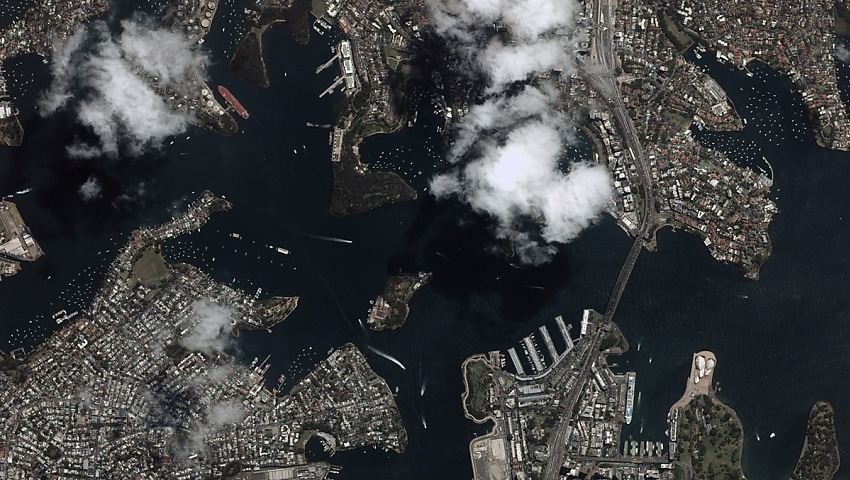The United Kingdom’s armed forces personnel will have access to the latest space-based imagery for military operations, following a deal signed for a new Oberson satellite system.
The deal comes as UK Space Command has published the first images captured by Tyche, including those taken of Heathrow Airport, Sydney, Washington DC and the California wildfires.
The 127 million pound contract with Airbus is expected to support around 200 skilled jobs in Stevenage and Portsmouth, boosting the UK’s space sector and delivering on the government’s Plan for Change.
“Through UK Space Command, defence is partnering with industry and continuing to invest in advanced and innovative space technologies,” according to UK Space Commander, Major General Paul Tedman.
“Oberon, alongside Tyche and other satellites in our ISTARI constellation, will allow us to observe what’s happening on Earth from space at any time and through any weather. This will enable and enhance UK and allied military operations around the world.”
Oberon is expected to strengthen the UK’s intelligence, reconnaissance and surveillance capabilities.
The Oberon satellite system, made up of two Synthetic Aperture Radar (SAR) satellites, will be able to capture day and night-time images of the Earth’s surface, strengthening the UK’s Intelligence, Surveillance, and Reconnaissance capabilities.
Expected to launch in 2027, Oberon will have advanced imagery sensors, building on the capabilities of Tyche, UK Space Command’s first satellite which successfully launched in August last year.
Both satellites form part of the Ministry of Defence’s space-based Intelligence, Surveillance, and Reconnaissance programme, known as ISTARI, which will deliver a constellation of satellites and supporting ground systems by 2031.
These satellites will support military operations, for example by monitoring adversary activities, and contribute to other government tasks, including natural disaster monitoring, the development of mapping information, and tracking the impact of climate change around the world.
“Oberon’s satellites will give the UK a much-needed sovereign capability and greatly enhance its space surveillance autonomy,” according to Ben Bridge, Airbus Defence and Space UK Chairman.
“Airbus in the UK has more than 45 years’ experience in the design and build of high-resolution radar satellites and, once in orbit, these spacecraft will play a vital role in keeping our Armed Forces safe around the world.”
The contract for Oberon was awarded via competitive procurement to Airbus, which worked with Small and Medium-Sized Enterprises across the UK to leverage innovative new technologies for the 400kg satellites. The antennas for the spacecraft will be supplied by Oxford Space Systems, which has developed carbon fibre structures that stow away in very small volumes for launch but spring into shape once in orbit.
Oberon will play a key part in securing critical UK skills in the growing global space sector. The aerospace sector added almost 40 billion pounds to the economy last year, a growth of 50 percentage in the last ten years, and employs tens of thousands of people. The project will also help inform the procurement strategy for future space capability requirements.
Space-based intelligence, surveillance and reconnaissance offers unparalleled earth observation, operating over any part of the globe. Constellations of ISR satellites can use different sensors and cameras, allowing focus to move quickly from one area of the world to another. In contrast to conventional cameras, Oberon will use Synthetic Aperture Radar (SAR) to capture imagery in all-weather conditions.
“This has been a superb team effort by members of DE&S, Space Command, DSTL and industry,” according to Paul Russell, Space team leader at DE&S.
“With the award of the Oberon contract, we will deliver the next in a series game changing capabilities to UK Space Command providing the UK military with leading Space Based Synthetic Aperture Radar whilst helping to keep our nation safe and prosperous.
“We are looking forwards to working with Airbus as our Mission Partner to deliver this important capability together.”



